Full name:
Alcide Amedeo Francesco De Gasperi
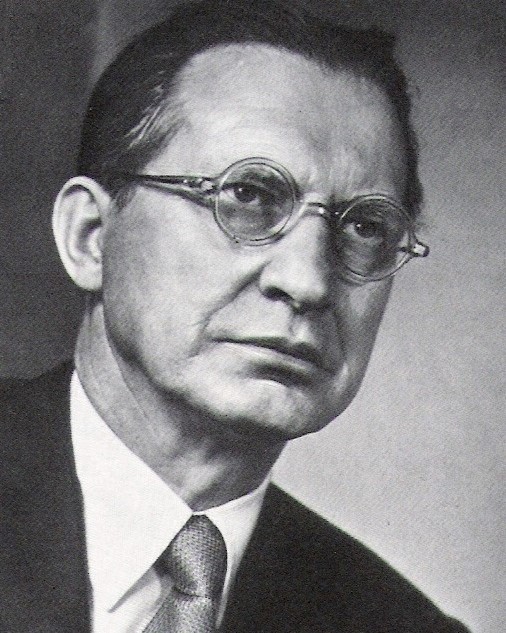
"An inspired mediator for democracy and freedom in Europe"
Alcide Amedeo Francesco De Gasperi
3 April 1881, Pieve Tesino, Tyrol, Austria-Hungary (now in Italy)
19 August 1954 (aged 73), Borgo Valsugana, Trentino, Italy
- Alcide De Gasperi
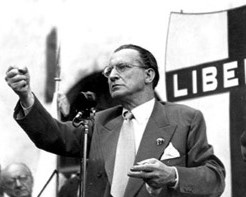
De Gasperi during a rally of Christian Democracy
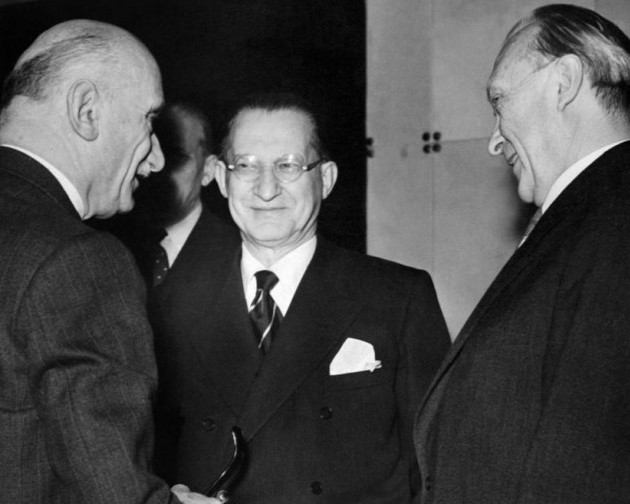
(left to right) Robert Schuman, Alcide De Gasperi and Konrad Adenauer
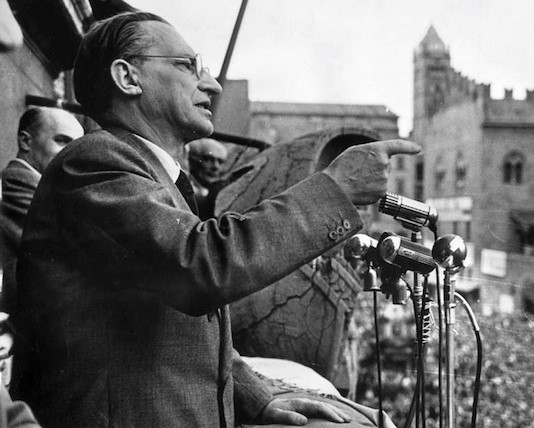
De Gasperi delivers a speech to the crowd in Bologna, 1951
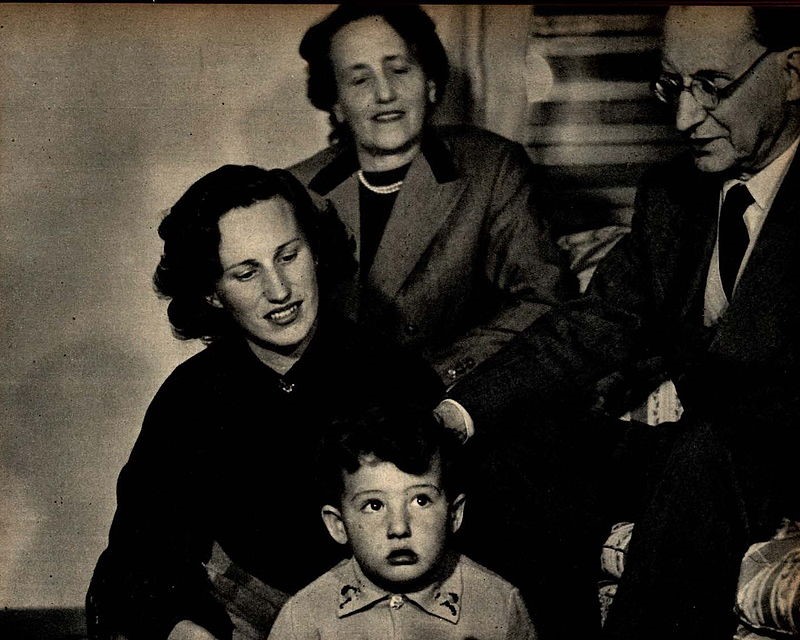
The family of Alcide De Gasperi in 1951
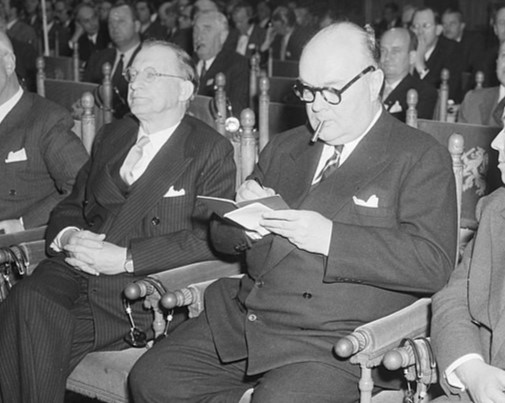
Alcide De Gasperi and Paul-Henri Spaak at a international conference, Netherlands, 1953
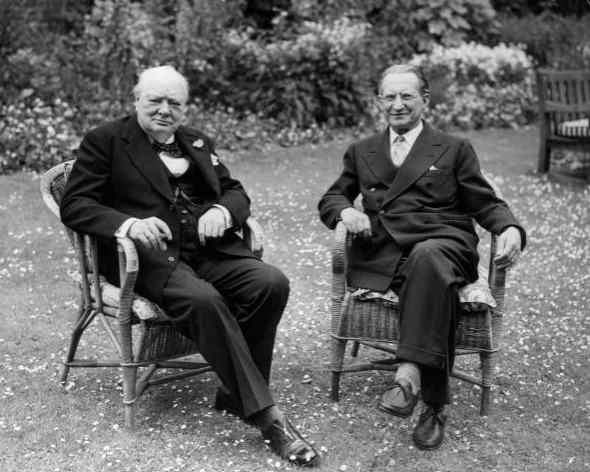
Italian Prime Minister, Alcide De Gasperi, and UK Prime Minister, Winston Churchill, London, 1953